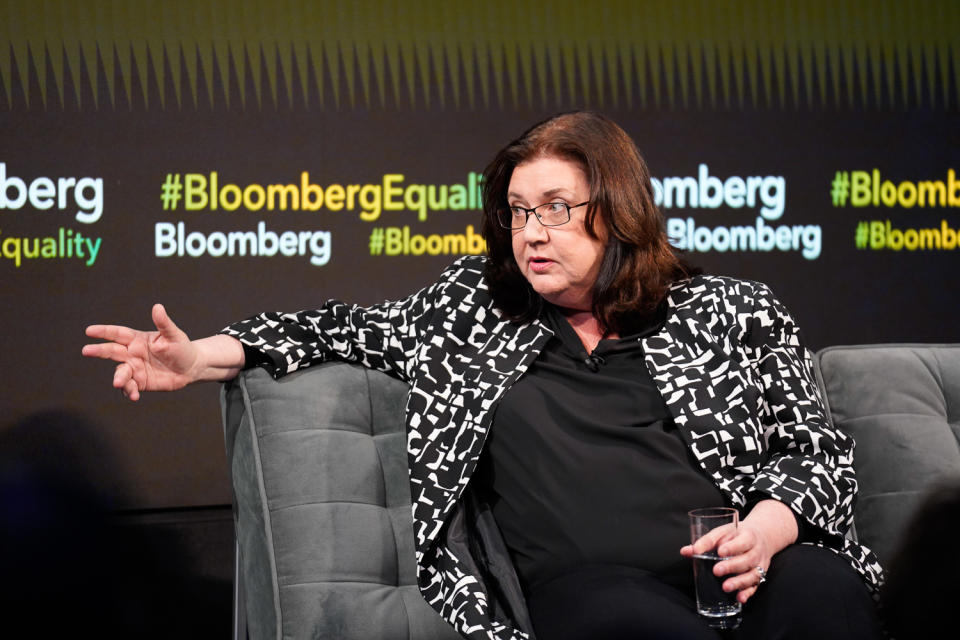The 2 things Bridgewater Associates isn't radically transparent about

Bridgewater Associates manages about $160 billion in assets, making it the largest hedge fund in the world. But it’s perhaps best known for touting a corporate culture built upon “radical truth” and “radical transparency.” Still, there has always been a great deal of mystery shrouding the firm.
Last March, Jon Rubinstein resigned as co-CEO just 10 months after joining Bridgewater from Apple. Bridgewater founder Ray Dalio also left his position as co-CEO, but announced that he would remain co-chief investment officer and co-chairman. Eileen Murray has endured several corporate shuffles, experiencing a relatively consistent tenure at Bridgewater, having joined the company in 2009 and served as co-CEO since 2011.
‘I, not Bridgewater, would support more pay transparency’
In a rare interview at Bloomberg’s inaugural “Business of Equality” conference on Tuesday, Murray acknowledged that Bridgewater’s culture is “not for everyone.” She specifically mentioned two topics that the company is not transparent about — personal situations that should remain as private matters and employee pay. Murray did not expand on why Bridgewater doesn’t disclose how much its employees make, but lauded a new regulation in the U.K. that forces large companies to report their gender pay gaps.
“It’s something that over time we will see changes in, [answering questions like] ‘how many women did you hire’ and ‘how many people did you lose?’, focusing on metrics. It seems to me, if it’s measured it’ll be managed.”
When asked whether she would self-impose a similar measure at Bridgewater, she said it’s not in the cards for the company just yet. “As an individual, I, not Bridgewater, would support more pay transparency.”
Though Bridgewater purportedly operates as a meritocracy and encourages brutally honest communication, this doesn’t necessarily translate to a happy work life for employees. Some have cited crying in the bathroom during work because of insurmountable pressure.
The company is known for its extremely high turnover — approximately one-fourth of its 1,700-person workforce leaves during their first 18 months on the job. Murray acknowledged this claim.
“We have a very high attrition rate — it’s probably double what most firms have. People that stay after the 18 months really love the radical truth and radical transparency. You don’t need to worry about people talking behind your back. Most people would like to know the truth,” she said on a panel called “Women in Finance: Breaking Through the Glass Ceiling.”
Thirty-percent of Bridgewater’s senior executives and 40% of employees overall are women, according to Murray. “It’s a pretty good ratio in terms of where we are. Overall, we’re 60-40. Part of that is supply and demand, particularly those with STEM degrees. From 1980 until now there’s been a 15% decrease in women pursuing STEM degrees, yet two-thirds of the job growth is coming from those industries. We believe in meritocracy, radical truth and transparency. Not to say that we don’t need to make more progress. If you’re a meritocracy, you will get your fair share of diversity. If we really stick to that, I think we’ll get there.”
Melody Hahm is a senior writer at Yahoo Finance, covering entrepreneurship, technology and real estate. Follow her on Twitter @melodyhahm.
Read more:
